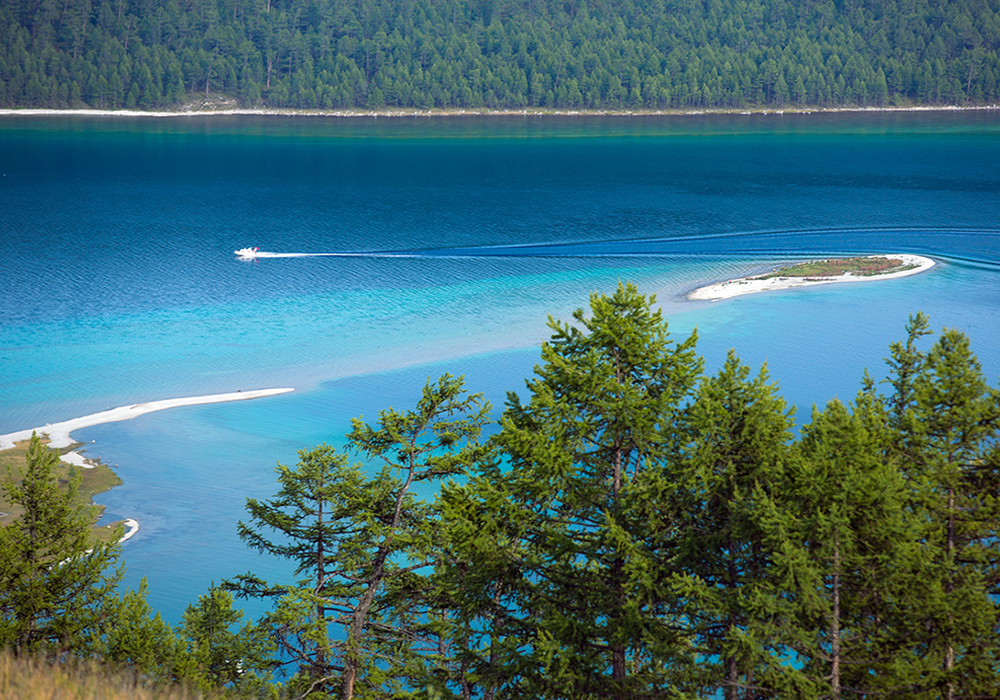976-95957701
info@montrailstour.mn

Known as the Blue Pearl of the Mongolia, Khuvsgul Lake is an extraordinary lake that stretches 136km deep into the Siberian taiga in the northwestern part of Mongolia, is one of the 17 ancient lakes in the world, formed more than 2 million years ago. The Khoridol Saridag and the Bayan Mountain Ranges are located at the western part, whilst the Munkh Saridag Mountain Range occupies the northern shore of the lake. On the east one can find sloping mountain sides covered by lush forests between flat-topped mountains, which are the source of 29 of the lake’s tributaries. The highest peak is the Burenkhaan, also known as the Monkh Saridag, with a height of 3,492 meters, located at the northern end of the lake, at the Mongolian-Russian border. The lake and its surrounding mountains form the basis for this popular national park, a major destination for both Mongolian and international tourists.
In surface area, this is the second-largest lake (2760 sq km) in Mongolia, surpassed in size only by Uvs Lake, a shallow, salty lake in the western part of the country. But Khuvsgul Lake is Mongolia’s deepest lake (up to 262m) as well as the world’s 14th-largest source of freshwater – nearly 70% of Mongolia’s freshwater and 0.4% of all the freshwater in the world (that’s 380,700 billion liters!). Geologically speaking, Khuvsgul Lake is the younger sibling (by 23 million years) of Siberia’s Lake Baikal, 195km to the northeast, and was formed by the same tectonic forces.
The lake provides habitat for 10 species of fish such as Eurasian perch, burbot, salmon, sturgeon, grayling, and lenok, and the area is home to argali sheep, ibex, bear, sable, moose and a few near-sighted wolverines. It also has more than 200 species of bird, including the Baikal teal, bar-headed goose (kheeriin galuu in Mongolian), black stork and Altai snowcock.
The region hosts three separate, unique peoples: Darkhad, Buriat and Tsaatan (aka Dukha). Shamanism, rather than Buddhism, is the religion of choice in this part of the country.
The lake water is still very clean but a rise in livestock using the area for winter pasture has led to some pollution of the shore and tributaries, so you are better off purifying your water.
If you love fishing, then you’ll get excited about Khuvsgul Lake. Around a dozen species of fish inhabit the lake, including salmon, (bony) sturgeon, grayling and lenok



